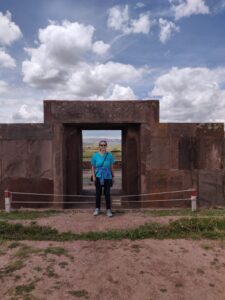Co-Operative Education
Co-Operative Education for B.A. Honours
A co-operative education option is available to students registered in the B.A. Honours programs. Students must successfully complete three work terms to obtain the co-op designation.
Admission and Participation Requirements

Co-Op Option for B.A. Honours Anthropology

Co-Op Option for B.A. Honours Sociology

Visit the Co-Op Website
The video below is from a panel presentation hosted in 2021 and describes the benefits of the co-op program, outlines the differences between co-op and practicum/placement courses, and answers common student questions.

“I am extremely grateful for the opportunities my degree has presented, and one of the most important ones was to be a part of the co-operative student experience. When I chose Carleton University, it was because it offered this unique opportunity that has enhanced my experience tenfold. I had the chance to work in a government setting, at Crown Indigenous Relations and Northern Affairs Canada, as well as at Environment Canada, that allowed me to adapt my knowledge of the experiences of Indigenous peoples in Canada to help them achieve greater sovereignty through modern treaties and through the land claims process. I feel extra lucky because those positions allowed me to travel to the communities of Indigenous people across Canada, and that would not have been possible without me going through the co-operative process.”
– Deanna Cummings
Find more testimonials below!
Past Employers
Below, you will find a list of some past-employers that students in the Department of Sociology and Anthropology have worked with during their co-op work terms. Students in our department have held a variety of positions including research assistantships in user experience (UX), positions within policy development and analysis, and those in support of alumni outreach efforts.
Agriculture and Agri-Food Canada
Canada Border Services Agency
Canadian Food Inspection Agency
Canadian Heritage
Canadian Medical Association
CBC/Radio-Canada
Crown-Indigenous Relations and Northern Affairs Canada
Department of Foreign Affairs and International Trade
Department of National Defence
Environment and Climate Change Canada
Fisheries and Oceans Canada
Immigration, Refugees and Citizenship Canada
Indigenous and Northern Affairs Canada
Public Health Agency of Canada
Public Services and Procurement Canada
Royal Canadian Mint
Want to Learn More?
Check out the PowerPoint presentation that the Co-operative Education team made for SocAnth students to learn more about the benefits of co-op, eligibility requirements, how to apply and secure a co-op job, and more
Testimonials

As a former student in Carleton’s BA Honours program in Anthropology I participated in the co-operative education option offered. This option allowed me to incorporate the skills and new ways of thinking I was learning in practical ways. I had the privilege to fulfill my co-op requirements both in the public sector, working for Employment and Social Development Canada in statistics and program analysis, but also with an NGO, assisting in advocacy research and reporting. Both of these experiences were widely different, requiring different academic and interpersonal skills. Both helped shape my understanding of anthropology and the many ways it could be useful as a worldview. My experiences helped me formulate my thoughts about post-undergraduate plans, solidified my passion for advocacy and social justice work, and gave me a deeper understanding of the processes of government and their allies. I look back on my co-op experiences as a formative part of my degree at Carleton, as a trial-by-fire opportunity to bridge the gap between academia and practice, and as experiences that contributed to my growth as an individual.
– Clare Maier
“As an Arts major specializing in Anthropology at Carleton University, I was involved in the co-op program while I completed my Bachelor’s degree. I am so grateful for the experience as I was able to apply what I had learned in the classroom to a hands-on work environment in Ottawa. The academic background and skills that I acquired on campus helped prepare me for the position as a research assistant in the federal government – beginning at Crown-Indigenous Relations and Northern Affairs Canada (formerly Aboriginal Affairs and Northern Development Canada), as well as subsequent government positions.
Both my academic and co-op experience further sparked my interest and passion in learning more about Indigenous issues in the Canadian context (in particular in the area of resource development) as well as a passion for international human rights issues. During my time at Carleton, I also worked at Natural Resources Canada and Global Affairs Canada as a co-op student where I gained invaluable experience that helped to develop and strengthen my policy writing, analytical and research skills both in the classroom and in the workplace. Over time, I also developed a network of colleagues from various departments that I continue to depend on.
Today, as a Policy Analyst for Crown-Indigenous Relations I continue to rely on the co-op program at Carleton University to hire new students who are also looking to actively apply what they are studying and to gain experience in the federal government – I’ve truly come full circle!”
– Leah Lavoie

Apply for Co-Op

How Does Co-Op Work?
